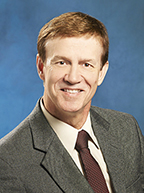
Charlie Chase is considered an expert in sales forecasting, market response modeling, econometrics and supply chain management. Now he's sharing some of his expertise in his Business Knowledge Series (BKS) course, Best Practices in Demand-Driven Forecasting. I had the chance to ask him some questions about his course and the state of the forecasting industry.
- What do you think has been the biggest advancement in forecasting over the last 10 years?
[CC]: Data collection, storage and processing capabilities along with large scale automatic forecasting technology providing the capability to automatically forecast up/down a business hierarchy for hundreds of thousands of products.
- If you could forecast (so to speak) how you think forecasting will evolve over the next 10 years, what do you predict will change?
[CC]: Predictive analytics will take center stage supporting demand sensing and shaping utilizing both structured and unstructured data. A new position entitled “demand analyst” will supplement demand planners with analytics and will become standard practice across all industries. Companies will create analytics centers of excellence supporting not only demand forecasting and planning, but all facets of the company’s analytical needs. Multi-Tiered Causal Analysis (MTCA) will be common practice for those companies who have access to POS/Syndicated Scanner data to improve forecast accuracy.
- What’s the biggest mistake forecasters make and how can they fix it and learn from it?
[CC]: Business knowledge alone is not enough to become a good forecaster. Forecasting requires two key things, 1) analytics, and 2) domain knowledge, not “gut feeling” judgment. Forecasters need to supplement their business knowledge with analytics by taking classes at local universities, attending business forecasting workshops (SAS BKS Workshops), attend business forecasting conferences, and get certified as a “Certified Professional Forecaster” through the Institute of Business Forecasting.
- What’s the best advice you can give forecasters?
[CC]: Continue to develop your skills, knowledge, and domain experience. This also includes developing your communication skills and span of knowledge across the supply chain, which includes the commercial side (sales and marketing) of the business. The future of demand management will be the ability to support sales and marketing with analytics to supplement and enhance the demand-driven forecasting and planning process.
- You created a new Business Knowledge Series course, Best Practices in Demand-Driven Forecasting. Why did you create the course and who can benefit from taking it?
[CC]: I created this BKS course to share my knowledge of demand-driven forecasting best practices based on my past experiences, and provide practitioners with a framework to implement a demand-driven forecasting process. Most forecasting courses only focus on algorithms and proofs with little attention to applying analytics and domain knowledge. This BKS course focuses on applying, interpreting, and implementing statistical methods using domain knowledge.
It's designed for demand Forecasting analysts/planners, demand forecasting and planning directors/managers, marketing analysts/planners/managers/directors, and supply chain analysts/planners/managers/directors, as well as financial planners/managers.
- Can you share any tips from the course?
[CC]: The course focuses on the demand-driven process, analytics, and enabling technology with emphasis on applying different statistical methods, interpreting the results, and applying the appropriate methods that will give the best results. There will be no programming with code.
Learn more and sign up for the course - Best Practices in Demand-Driven Forecasting

1 Comment
Pingback: New! “Demand-Driven Forecasting” course from SAS - The Business Forecasting Deal